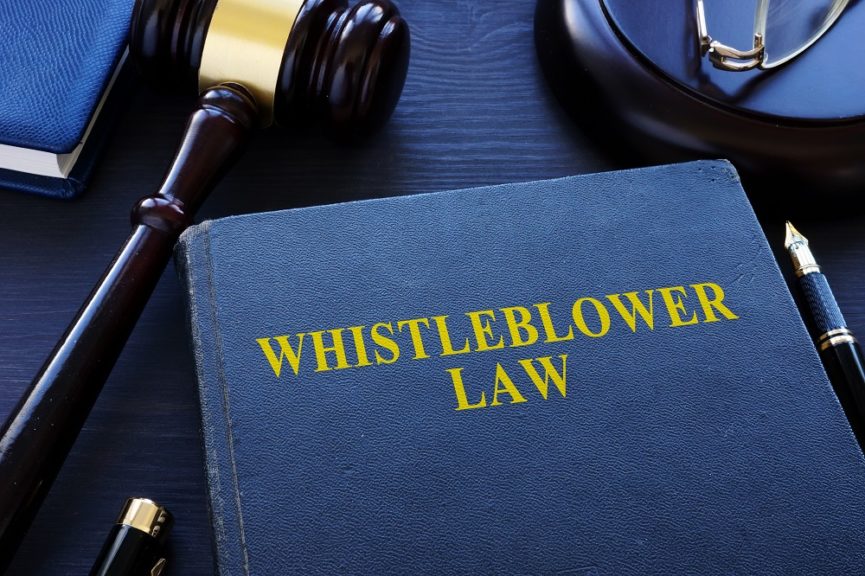The Whistleblower Protection Act of 1989 is a federal law that protects government employees from retaliatory action – but there are other laws in place, particularly in California, that protect other employees, as well.
Whistleblowing Under the Whistleblowing Protection Act and California Law: What Counts?
Whistleblowing is the act of reporting:
- A violation of a state or federal statute
- A violation or noncompliance with a local, state or federal rule or regulation
- Unsafe working conditions or work practices (with regard to employee safety or health) in the employee’s place of employment or line of duty
What is the Whistleblower Protection Act?
Sometimes called the WPA, the Whistleblower Protection Act prohibits retaliation in government agencies after someone discloses information about dishonest or illegal activities. It also prohibits government agencies from taking action (or even threatening to take action) against an employee who discloses information that the employee believes is a violation of a law, rule or regulation, even if it’s not.
What Laws Protect Whistleblowers in California?
 The state of California also protects whistleblowers through its labor code, which says that employers can’t make, adopt or enforce rules that prevent people from coming forward with important information – and that employers can’t retaliate against employees for disclosing that information.
The state of California also protects whistleblowers through its labor code, which says that employers can’t make, adopt or enforce rules that prevent people from coming forward with important information – and that employers can’t retaliate against employees for disclosing that information.
Who is Protected Under the Whistleblower Protection Act and California Whistleblowing Laws?
The WPA protects employees of federal agencies, but California – as is often the case – protects a broader group of people with its law. All employees are protected, including those who work for the state, a city or county, or any other governmental agency, municipal or public corporation, political subdivision or the University of California. The law covers public and private employees.
Whistleblowing Examples
Whistleblowing isn’t a new concept – and it’s very necessary. It’s the act of letting someone know when something is going wrong within an agency or company.
 Whistleblowing Example #1
Whistleblowing Example #1
You discover that your boss is stealing money from the “petty cash” your company keeps on-hand. You don’t know what he’s spending it on, or even how much he’s stolen, but you definitely know he’s stealing it. If you go to his supervisor and make her aware of the situation, you’re whistleblowing – and you’re protected under California’s whistleblower laws.
Whistleblowing Example #2
You find out that your company is dumping wastewater into the Los Angeles River. There haven’t been any reports of anyone getting sick, but you know that there are laws involving what can and can’t go into the river. You report the dumping to the appropriate agency – you’re blowing the whistle on unlawful practices, and California law protects you.
Whistleblowing Example #3
Your name is Mark Felt and you call Bob Woodward and Carl Bernstein using the name “Deep Throat” to blow the lid off Watergate. You’re protected (today you would be, at least) under federal laws. California law would protect you, too.
Can You File a Claim for Damages if Your Employer Violates Whistleblower Protection Laws?
If you’re eligible for protection under our state’s whistleblower laws, you’re allowed to file a claim for damages that resulted from retaliation. You could be entitled to lost wages, reinstatement in your former position, or even compensation for a damaged reputation. While no two cases are the same, and nobody can predict how a judge will rule, we can tell you that if you’re entitled to compensation, we’ll fight hard to get it for you.
Do You Need to Talk to a Lawyer About Whistleblower Protection?
Whether you believe your employer violated the Whistleblower Protection Act or California’s laws on whistleblowing, we may be able to help you.
Call us at 818-230-8380 for a free case review. We’ll answer your questions and talk about possible outcomes of your case, as well as give you the legal advice you need.




